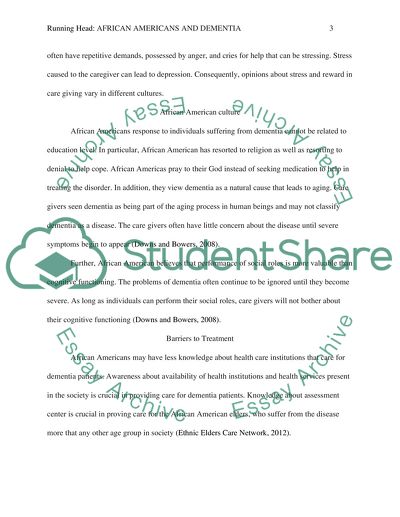Cite this document
(“African Americans and Dementia Research Paper Example | Topics and Well Written Essays - 1000 words”, n.d.)
African Americans and Dementia Research Paper Example | Topics and Well Written Essays - 1000 words. Retrieved from https://studentshare.org/health-sciences-medicine/1782746-african-americans-and-dementia
African Americans and Dementia Research Paper Example | Topics and Well Written Essays - 1000 words. Retrieved from https://studentshare.org/health-sciences-medicine/1782746-african-americans-and-dementia
(African Americans and Dementia Research Paper Example | Topics and Well Written Essays - 1000 Words)
African Americans and Dementia Research Paper Example | Topics and Well Written Essays - 1000 Words. https://studentshare.org/health-sciences-medicine/1782746-african-americans-and-dementia.
African Americans and Dementia Research Paper Example | Topics and Well Written Essays - 1000 Words. https://studentshare.org/health-sciences-medicine/1782746-african-americans-and-dementia.
“African Americans and Dementia Research Paper Example | Topics and Well Written Essays - 1000 Words”, n.d. https://studentshare.org/health-sciences-medicine/1782746-african-americans-and-dementia.


